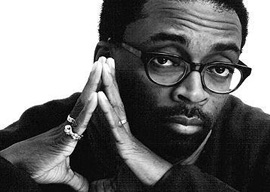
April 11, 2012

Spike Lee
Haidt, Jonathan. The Righteous Mind: Why Good People Are Divided by Politics and Religion. Pantheon, 2012.
The Derbyshire Affair, America’s latest Two Minutes Hate over race, provides a fresh example with which to assess social psychologist Jonathan Haidt’s framework for why some people are liberal and others conservative. Although Haidt’s readable new book, The Righteous Mind: Why Good People Are Divided by Politics and Religion, does much to explain this dichotomy, he never quite articulates the most fundamental explanation.
When Haidt asked his thousand social-psychologist colleagues at their annual convention in 2011 to identify themselves politically, only three conservatives dared stand up. Haidt, however, has been shaking up his intellectually stodgy field with his evenhanded theory that liberals, libertarians, and social conservatives differ on the weights they give a half-dozen “moral foundations.”
In Haidt’s conception, liberals are the ideological descendants of John Stuart Mill, valuing “individual autonomy” über alles so long as it does no harm to anyone else. In contrast, conservatives have a broader range of concerns such as sanctity, authority, and loyalty.
I”ve converted Haidt’s various graphs to a table, with 1 representing lack of interest and 5 near-monomania:
|
|
Liberals |
Libertarians |
Social |
|
Care/Harm |
4 |
1 |
2 |
|
Liberty/Oppression |
3 |
5 |
2 |
|
Fairness/Cheating |
2 |
2 |
2 |
|
Loyalty/Betrayal |
1 |
1 |
2 |
|
Authority/Subversion |
1 |
1 |
2 |
|
Sanctity/Degradation |
1 |
1 |
2 |
But does this table truly describe modern American liberals?
Consider director Spike Lee, who recently terrorized an elderly couple in Sanford, Florida by Tweeting their home address to his 265,000 followers under the mistaken impression that his racial archenemy, George Zimmerman, lived there. J. S. Mill’s influence on Spike, who has the temperament of a Jim Crow-era rabble-rouser, is unclear. Yet Spike is in no danger of being booed for trying to rouse a lynch mob when he takes his courtside seat at Madison Square Garden; everybody knows he’s a good liberal. Sure, Spike is a racist, but he’s a racist against whites, so that’s OK. It’s understood that for nonwhites, liberalism equals ethnic tribalism.